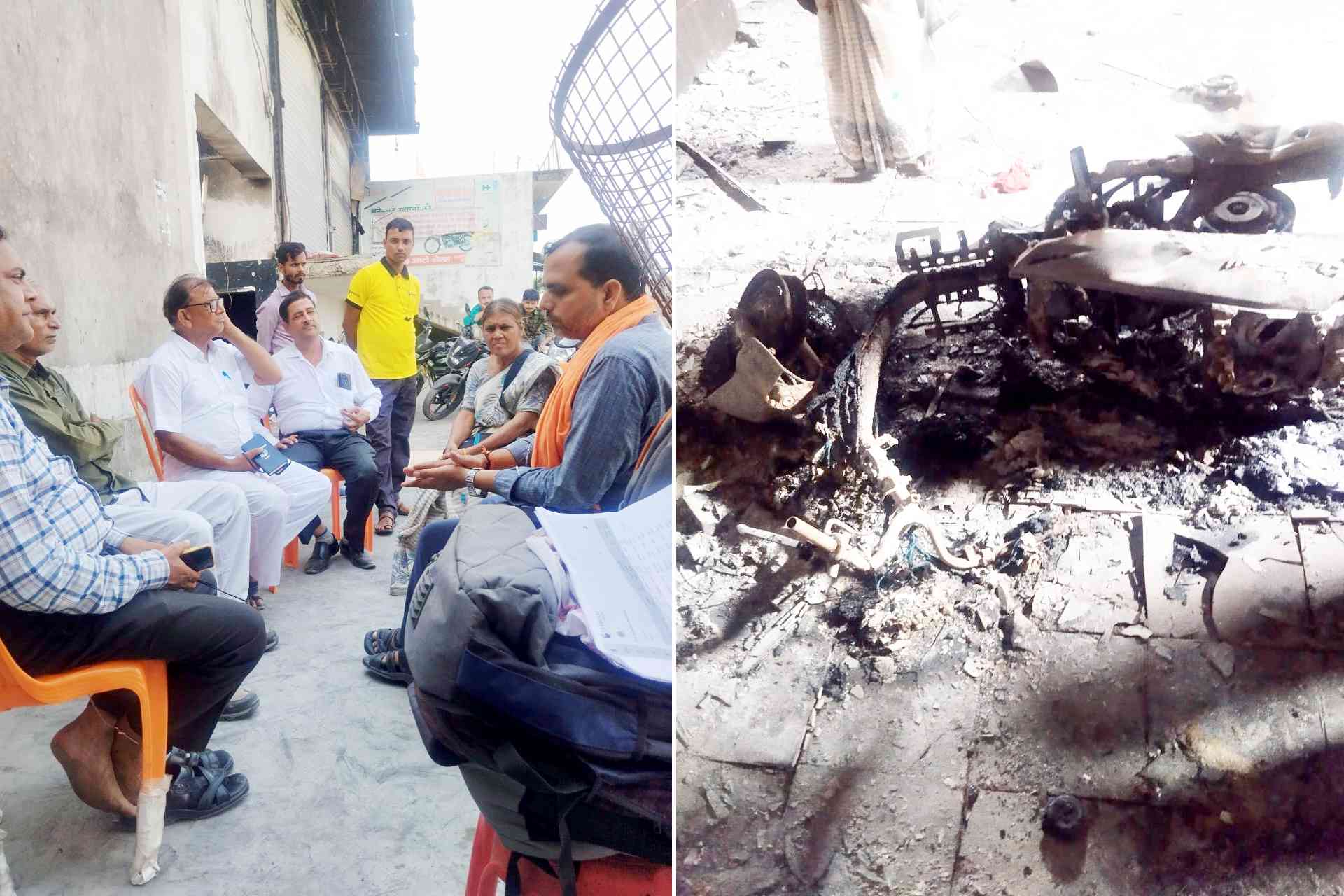Violence in UP’s Bahraich Was Orchestrated to Create Communal Polarisation: CPIML Report

Party's Seven-Member Team Visits Violence-Hit Maharajganj in UP, Calls for Independent Investigation
A CPIML fact-finding team, led by the party’s State Secretary Sudhakar Yadav, visited Maharajganj town in Bahraich, Uttar Pradesh, which experienced widespread communal violence on October 13. The team met with victims and witnesses and concluded that the violence was premeditated. In a report released on Sunday, October 27, the team also raised serious concerns about the role of the police and local administration, accusing them of complicity in the violence.
The CPI(ML) team asserts that the violence was not a spontaneous communal clash but a deliberate plan. "Had the police acted appropriately, the situation could have been defused at several points," the report stated. It highlighted instances such as the failure to stop DJs playing inflammatory songs and the inaction when Ram Gopal Mishra, a now-deceased individual, climbed onto the roof of Abdul Hameed’s house, tore down a religious flag, and replaced it with a Hindutva-saffron flag.
The team rejected the notion that the October 13 incident was a communal riot, arguing that it was a pre-planned conspiracy aimed at creating communal polarization and targeting the Muslim community. Mishra was shot by an unknown assailant while waving the saffron flag, but the report noted that there was no violent retaliation from the minority community. However, the following day, protests demanding the arrest of Mishra’s killers escalated into arson and looting. Over two dozen shops, a private hospital, and a motorcycle showroom belonging to the minority community were set ablaze. The CPI(ML) report also highlighted that huts belonging to two minority families were burned, and a Muslim scrap collector was attacked, with his house being torched.
The report strongly condemned the police's inaction, stating that officers allowed right-wing mobs to gather in Maharajganj without intervention. "The administration gave free rein to the miscreants, allowing them to wreak havoc. The violence was clearly organized and pre-planned," the report stated.
Victims recounted their losses to the CPI(ML) team, describing the deep ties between the town's communities that were shattered by the violence. The team noted that the incident seemed designed to replicate the communal riots seen in Muzaffarnagar and Nuh, with the intent to intimidate and vilify the Muslim community. An elderly fruit vendor lamented that his stock had rotted during the 12-day shutdown that followed the violence. Other business owners echoed similar sentiments, highlighting the atmosphere of fear and financial loss. Two kilometres away from the town, the house of a Muslim man who earned his living by collecting scrap was set on fire, and he was beaten.
The CPI(ML) team observed that after 12 days, only 10 percent of the shops in the town had reopened. There is still an atmosphere of panic. Abdul Hameed's house remains vacant, with him and his sons in jail.
Locals informed the team of police bias, reporting that several members of the Muslim community were arbitrarily arrested and imprisoned following the incident. The report questioned the motives behind these arrests and called for the release of innocent individuals.
The murder of Ram Gopal Mishra remains unresolved, and many locals believe that only an independent investigation can uncover the truth, including the possible complicity of the administration.
The CPI(ML) is calling for the formation of an independent committee, chaired by a sitting judge of the High Court, to conduct an impartial investigation into the violence. They demand that the culprits be punished, innocent detainees be released, appropriate compensation be provided to affected residents and shopkeepers, and efforts be made to restore communal harmony.
The other members of the fact-finding team included Comrades Krishna Adhikari, Rajesh Sahni, Vijay Vidrohi, Rana Pratap Singh, Dr. Shakoor Alam, and Shantam Nidhi of AISA.
Charu Bhawan, U-90, Shakarpur, Delhi 110092
Phone: +91-11-42785864 | +91 9717274961 E-mail: info@cpiml.org

